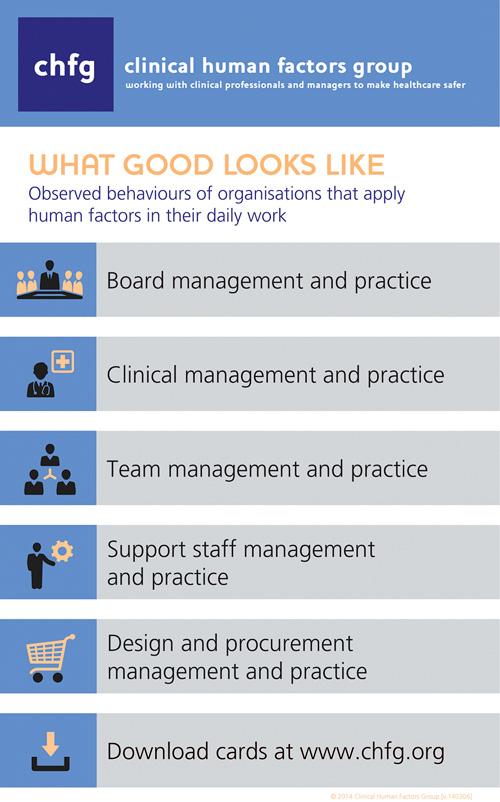What are clinical human factors?
Human Factors are organisational, individual, environmental, and job characteristics that influence behaviour in ways that can impact safety…
…in clinical and healthcare contexts that means lives are at stake.
Human Factors (also called ergonomics) is a discipline that considers both the physical and mental characteristics of people as well as the organisational factors or wider socio-technical system.
It is the application of scientific methods to the design and evaluation of tasks, jobs, equipment, environments and systems to make them more compatible with the needs, capabilities and limitations of people.
In healthcare Human Factors can improve human performance, optimise well-being, improve both staff and patient safety and experience and improve the overall system performance.
Human Factors, when applied systematically throughout the organisation, has the biggest impact.
For more information click on the report to download a PDF copy of “Human Factors in Healthcare: Common Terms” by Christine Ives & Steve Hillier
Research shows that 2017 was the safest year in aviation history. Whereas, the NHS continues to have 150 preventable deaths per week.
If we design tools, equipment, hospitals, IT systems, services to meet the needs of people, the healthcare workers are more likely to be able to work to the best of their ability…
…If we make it easier for healthcare staff to work more efficiently, effectively and safely then patients will benefit too…
By identifying, understanding and managing the Human Factors involved in developing safer systems will help to improve patient safety …


